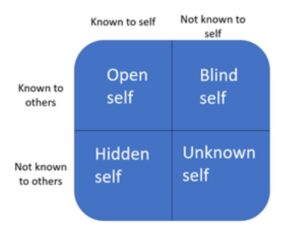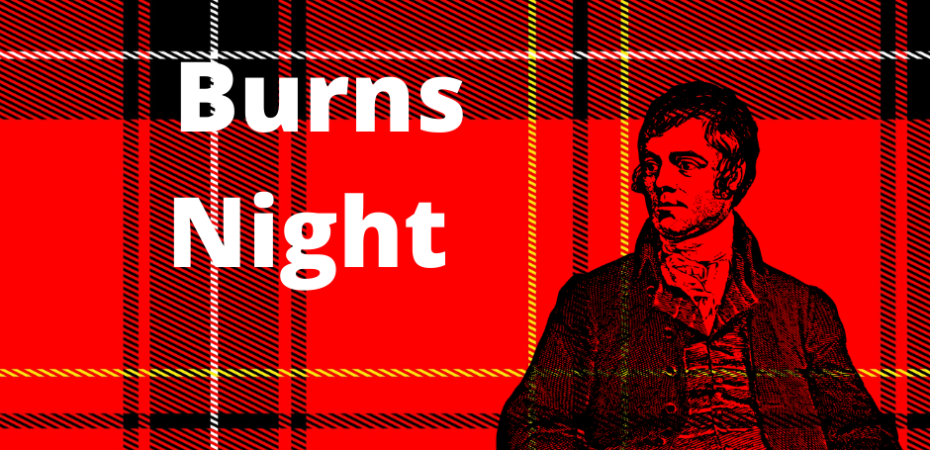Ruth Cawston is on placement this January at the Careers Service at the University of Edinburgh. Ruth joins us from her postgraduate course in Career Guidance and Development at Edinburgh Napier University.
“O wad some Pow’r the giftie gie us; To see oursels as ithers see us!”
Every year on 25th January, the life and works of Scottish poet, Robert Burns, are celebrated in Scotland and around the globe. Celebrations are typically marked with a Burns supper including haggis, whisky, and Burns’ poetry. In the Burns poem ‘To a Louse’, we are invited to contemplate the power of seeing ourselves as others see us. What potential is unlocked if we are able to hold up a mirror to ourselves and see our strengths and attributes as a friend, mentor or role model may see us! What gift feedback, in whatever form it comes, may be if we are able to receive it as such.
Burns’ words are relevant today as I am invited to write my thoughts on the value of reflection in the context of careers on this blog. Reflection can give us insights into our qualities, skills and actions that are sometimes out of our awareness. These insights can inform our career choices, improve our ability to articulate our strengths and support us to identify areas where we can improve. It might be that after reflecting on a project you recently pulled off, that you identify a strength in leadership that was previously hidden to you.
A sketch of the Johari Window, a device used in both therapeutic and careers counselling, might help to demonstrate the value of reflection (Luft & Ingham, 1955). A quick search on Google will point you to lots of different uses of the Johari window but hopefully the thumbnail sketch below gives a visual indication of the benefits of considering the Johari window in your career journey. Simply put, if you imagine yourself divided into four as below, you may only usually be aware of the contents of the top left ‘open self’ box. Perhaps you may find that using reflection supports you to access some key pieces of information about yourself that may guide your career or enhance your levels of career success.

Reflection can take place in many contexts; perhaps as part of your course you are asked to critically reflect. Or you may walk, drive, or sit on a bus while thinking through your day, conversations you have had or an article you have read. Some people choose to write a timed stream of consciousness, keep a journal or create mind-maps. If the process of reflecting becomes a helpful habit, it may be that expressing yourself in applications will become easier. You may find your CV feels more authentically “you”; or it may just help you to identify the routes you would like to pursue and those under which you would rather draw a line.
You can seek the views of others to inform your reflections. As a student of careers guidance myself, I have the opportunity to be observed repeatedly in my practice. However daunting, feedback is part of the gift to which Burns refers in To a Louse. Feedback enables us to at least glimpse how others see us and build a picture. For example. I have integrated feedback into my practice by reflecting on it. I seek out areas for improvement, make a plan to improve my practice and follow that through. I read about the area I am focussed on and ask practitioners who are in a position to advise. Reflection on feedback can support you to focus your efforts effectively in choosing the support you need. You may be in a better position for example to select the right support for you, from the University’s Careers Service.
An ability to reflect and plan will support your career resilience and enable you to adapt to the changing world of work. A core part of managing your career is having the skills to navigate what may sometimes feel like an ever-changing world of work. Technology, public health and the environment are just some factors that can change the context of work – as we have seen recently. There is a greater emphasis now more than ever to develop career resilience, and reflective practice can be a habit in your toolkit to support you in lifelong learning. Value can be found in reflecting on even the most difficult career experiences or on your feelings about them. Every cloud has a silver lining!
The Careers Service here at the University offers a range of services to support your career growth. Careers Service Plus offers a range of tools to support you to increase your self-awareness and employability skills, giving food for thought for your own reflections. MyCareerHub enables you to book onto events hosted by the Careers Service, or book an appointment with a Careers Consultant. You can also access information about what’s on in our programme booklet Careers Essentials.
Luft, J., & Ingham, H. (1955). The Johari window, a graphic model of interpersonal awareness. University of California.


